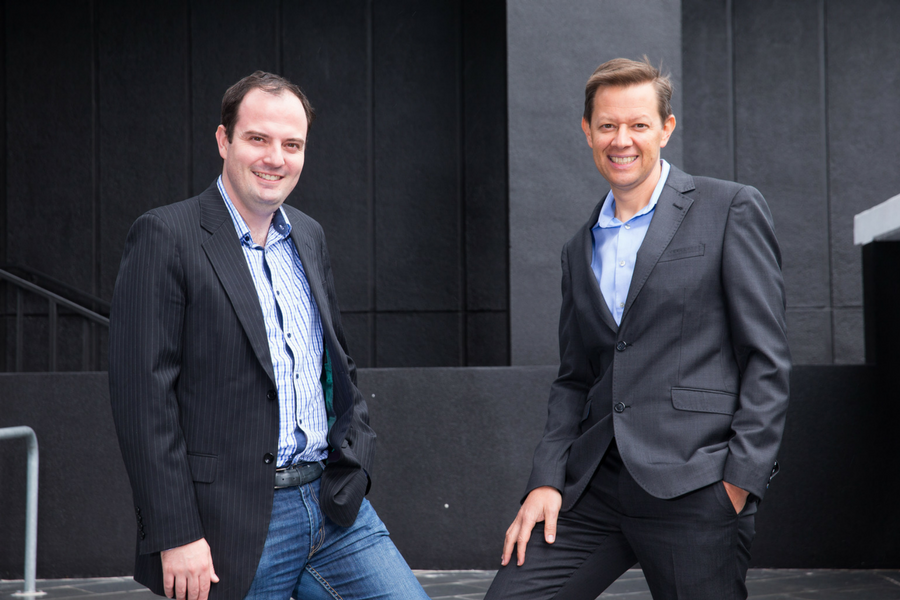Life as an international student can be difficult, with the day to day of navigating a new country and setting up a new life – opening a bank account, finding a place to live, getting health insurance, paying tuition fees and more – meaning one has to get to know a whole new set of institutions and their rules. (Then there’s also the exploitation of international students by employers.)
At the core of it all are payments, primarily made from foreign bank accounts in different currencies, with transfers raking up exorbitant fees.
Cofounded by Mark Fletcher, CEO, and Paul Jones, now CTO, Brisbane Cohort Go is a platform that looks to assist international students in setting up their lives and study in a new country, with a focus on facilitating easy payments to educational institutions, insurance companies, accommodation providers a student may be using, and providing comparisons to health insurance.
Students are able to facilitate transfers or payments to specific providers, or into their bank account, while partner education agents and educational institutions are able to offer their students access to payments through the platform.
With 15 years of experience managing foreign exchange portfolios across London, New York, and Australia, Fletcher said he saw an opportunity to help international students save thousands on their tuition payments by enabling them to pay in their own local currency, and offering them rates usually only available to large corporates.
He began work on the platform at Brisbane coworking hub River City Labs in 2011, where he soon met and linked up with Jones.
“In 2011, the startup scene was really just started to ramp up, given the efforts of Steve Baxter and others devoted to the industry. Being a fintech in Brisbane dealing with international payments was certainly unique. Yet, although the industry was at a nascent stage in its development, we still faced similar challenges to those starting up today: building a team, getting the product right, and reaching customers,” Fletcher said.
“Luckily, we had some strong relationships in place, with financial institutions for example, that allowed us to hit the ground running. We also had some great support from investors who really got what we were trying to do.”
The platform began by simply offering students an easier way to pay before expanding to offer access to related products and services an international student may need, such as health insurance, telco services, and support on arrival.
“As we worked more closely with international students, agents and education providers through hundreds of conversations, we realised that there was so much more we could do to help improve connections across the international education ecosystem,” Fletcher explained.
Now, the platform also works in partnership with providers, universities and registered training organisations offering placements to international students. For these providers, Cohort Go’s system, Cohortflow, can help streamline agent commissions, student refunds, and international supplier remittance, Fletcher explained, and also has software that helps providers manage their relationships with agents.
As is the case with many other businesses, the choice in partners is critical. In deciding who to approach, Fletcher said Cohort Go looks for “dedication to improving the student experience, and a willingness to innovate”.
“Engaging with new tech can be a hard sell in an industry as traditional as education, but we are finding that more and more institutions across the world are not just open to change, they are proactively seeking it out,” he said.
“In the early days at River City Labs, I remember discussing with many peers how they attracted their first paying customer. Getting our first agent partners on board involved a lot of jumping on planes to Asia to meet people face-to-face and explain what we were trying to do, why they needed to be involved, and that we were here for the long haul,” Fletcher explained.
The same went for meetings with education providers. The startup soon began to build momentum, however, and now has over 2,000 partners across 50 countries around the world.
With staff in 11 countries, Cohort Go has serviced more than 50,000 students from over 180 countries. According to Fletcher, the startup’s biggest student “source markets” are China and India, where students are “reaching out for an Australian education experience”, while Australia is Cohort Go’s biggest student destination market.
The startup most recently partnered with international student placement company IDP Education. The partnership will see 84 IDP Education branches across 14 countries provide access to the Cohort Go platform to its students as a value-added service.
As well as growing its footprint in its existing markets, Cohort Go is in particular focused on expanding across the UK and USA
Fletcher said, “As we continue to grow we are putting significant investment in the customer success and engineering teams and leveraging the platform to innovate new products and services to help education providers, agents and students.”
Image: Paul Jones and Mark Fletcher. Source: Supplied.




















Trending
Daily startup news and insights, delivered to your inbox.